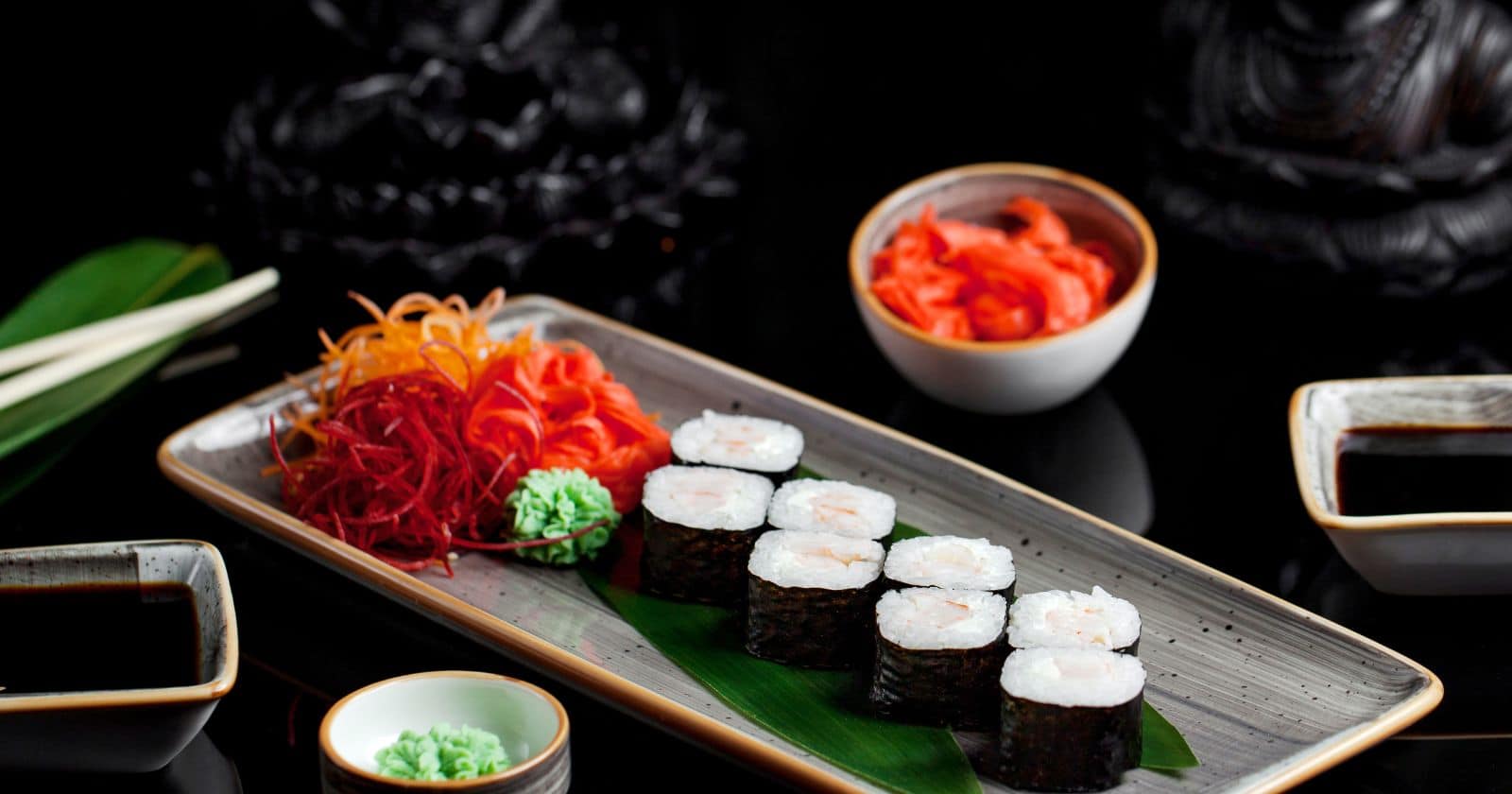Is sushi hard to digest? Many readers wonder if their favorite rolls will sit heavily. Though sushi is often perceived as difficult to break down, the answer may surprise you. The use of cooked rice and vinegar actually aids digestion by softening the rice. However, not all sushi is created equal. Raw fish or creamy sauces can present more of a challenge. The good news? With mindful choices, you can enjoy sushi without indigestion or guilt.
In this article, we’ll discuss how sushi is prepared, what ingredients are easiest on your stomach, and simple tips to make your next sushi meal an easy win for your digestive system. You’ll learn why sushi fans need not avoid this Japanese favorite. A few small tweaks can help your body happily handle those bites of seafood, rice, and vegetables.
Ready to dive in? Read on to get the full scoop on sushi’s digestion and how to choose the optimal rolls for your gut. With the right know-how, you can relish sushi to your heart’s content!
How Sushi Is Made for Easy Digestion
Authentic sushi contains vinegar-flavored rice, raw or cooked fish, and vegetables. This combination is easier to break down than you might expect:
- The vinegar aids digestion. Rice vinegar lowers the pH of the rice, making it less dense and more digestible. The fermentation process helps break down starch and protein.
- Rice provides carbs. Sushi rice gives you an excellent source of complex carbs. Unlike simple carbs, these steadily release energy without spiking blood sugar.
- Raw fish is easily absorbed. High-quality sashimi is rich in protein and healthy fats. The body can digest raw fish proteins faster than cooked.
- Vegetables add fiber. Cucumber, avocado, and seaweed offer filling fiber to support healthy digestion.
So why does sushi feel heavy for some? There are a few factors at play.
What Makes Sushi Hard to Digest
Not all sushi is digested equally. Certain ingredients and preparation methods make sushi sit heavier:
- Raw seafood – Shellfish, octopus, and squid are harder to break down than fish.
- Creamy sauces – High-fat mayonnaise, creamy spicy sauces, and avocado slow digestion.
- Fried toppings – Tempura batter and fried shrimp add grease that lingers in the stomach.
- Rice type – Short-grain white rice digests slower than vinegar-coated sushi rice.
- Overeating – Consuming a huge sushi feast can overwhelm the digestive system.
Additionally, some individuals may be sensitive to raw fish and struggle to digest it fully. People with gastrointestinal conditions like IBS may experience more difficulty digesting any fibrous or high-fat foods, including sushi.
Tips for Enjoying Sushi Without Indigestion
With mindful choices, you can relish sushi without overtaxing your stomach:
- Select lean protein – Stick to lean cuts of fish like tuna, salmon, yellowtail, and shellfish. Avoid heavy options like mackerel.
- Limit raw seafood – Cooked options like shrimp tempura and crab rolls digest more easily.
- Use restraint with fat – Hold the avocado, mayo, and spicy creamy sauces. Opt for sashimi over fatty rolls.
- Watch the rice – Request brown or sushi rice over white. Limit hand rolls which feature more rice.
- Pile on veggies – Load up rolls with cucumber, sprouts, radish, and other fiber-rich veggies to aid digestion.
- Stay hydrated – Drink plenty of water and unsweetened tea to help food digest smoothly.
- Mind your portions – Stick to a couple rolls and pieces of sashimi. Split rolls to control portion sizes.
- Go slow – Eat slowly, chew thoroughly, and don’t overload your stomach.
With small tweaks, you can keep sushi from sitting like a rock in your gut.
The Best and Worst Sushi for Digestion
Wondering which sushi rolls will treat your body right? Here are the top picks for easy digestion:
Best Sushi for Digestion
- Tuna, salmon, or yellowtail sashimi
- Vegetarian rolls (cucumber, avocado, radish, sprouts)
- Shrimp tempura rolls
- Rolls with minimal rice
- Hand rolls with cooked shrimp, vegetables
- Brown rice sushi
Worst Sushi for Digestion
- Fatty fish like mackerel, salmon skin hand rolls
- Creamy spicy tuna, baked scallops with mayo
- Tempura rolls with lots of fried toppings
- Maki rolls packed with white rice
- Repeated orders of fatty hand rolls
Keep your choices light, and you’ll feel light on your feet after your sushi fix.
Health Benefits of Sushi
Despite its reputation, high-quality sushi offers stellar nutrition in a deliciously convenient package:
- Protein – Fish and shellfish provide energy-sustaining protein to fuel your day.
- Essential nutrients – Options like salmon contain anti-inflammatory omega-3s, vitamin D, selenium, and more.
- Probiotics – The vinegar used to flavor sushi rice offers probiotics to support gut and immune health.
- Filling fiber – Seaweed, sprouts, and vegetables supply fiber that makes sushi surprisingly satisfying.
- Antioxidants – Ingredients like ginger and wasabi offer powerful antioxidants with anti-aging and anti-cancer benefits.
- Heart health – The omega-3s in sushi promote lower cholesterol, blood pressure, and triglycerides.
Just don’t negate the benefits with fried or creamy add-ons. With mindful choices, sushi is a regular part of an overall healthy diet.
The Takeaway: Enjoy Sushi in Moderation
Is sushi bad for digestion? With the right choices, not at all. Traditional Japanese sushi offers a light and nutritious meal. By choosing vegetables over fried fare, lean proteins, and easy-to-digest rice, you can relish sushi without regret. Listen to your body’s cues, and enjoy sushi as part of an overall balanced diet. Armed with these tips, your favorite sushi rolls can be a delicious and gut-friendly part of your weekly meal plan.




